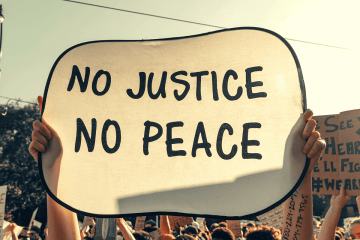Bradley Campbell in Quillette:
 When moral visions clash, it’s common for people to assume their opponents have bad motives rather than different perspectives. And it’s usually wrong. If you advocate some policy you believe will save lives, whether it’s a plan for fighting COVID-19, increasing health-care coverage, or reducing homicide, your opponents probably don’t oppose your plan because they want more people to die. They may think their own plan will save lives, or they may be concerned about other values entirely. You may very well have fundamental moral disagreements with them, but the thing you hate most about their position probably isn’t what’s driving them.
When moral visions clash, it’s common for people to assume their opponents have bad motives rather than different perspectives. And it’s usually wrong. If you advocate some policy you believe will save lives, whether it’s a plan for fighting COVID-19, increasing health-care coverage, or reducing homicide, your opponents probably don’t oppose your plan because they want more people to die. They may think their own plan will save lives, or they may be concerned about other values entirely. You may very well have fundamental moral disagreements with them, but the thing you hate most about their position probably isn’t what’s driving them.
We see this in the current debates over the new social justice movement. The critics of social justice activists sometimes talk as if what’s driving the activists is a kind of oversensitivity, as if they’re the equivalent of small children having tantrums to get attention. In 2016, for example, an Iowa state legislator introduced the “Suck It up, Buttercup” bill, which would have fined universities offering counseling and “cry rooms” to students upset about the 2016 presidential election. And in 2018 then-US Attorney General Jeff Sessions, in a speech about threats to free speech on college campuses, warned that schools were creating a generation of “sanctimonious, sensitive, supercilious snowflakes.”
The social justice activists aren’t snowflakes, though; they’re not people who just haven’t learned to suck it up. Sessions and others may perceive them that way—that is, the sensitivity the activists often display may be what they object to—but surely the activists themselves and those inspired by them are driven by moral concerns, by a vision of how to improve the world. Failing to understand that leads the activists’ critics to underestimate them.
More here.
